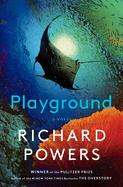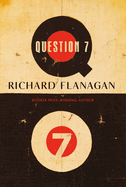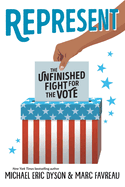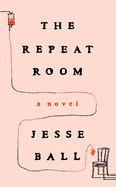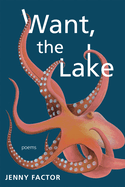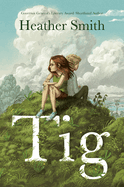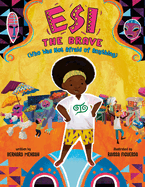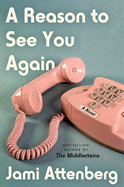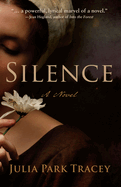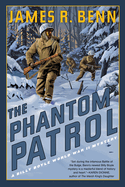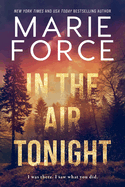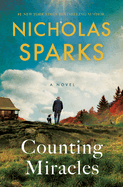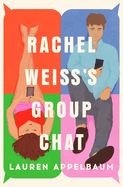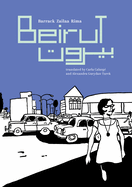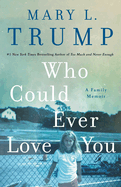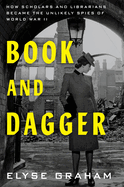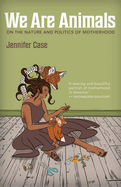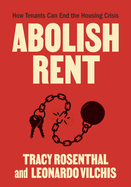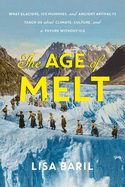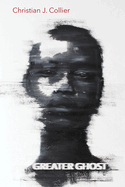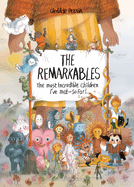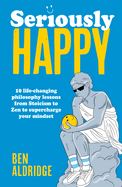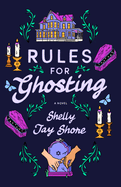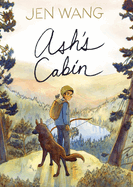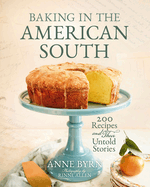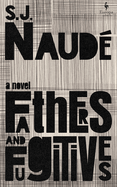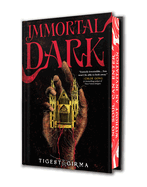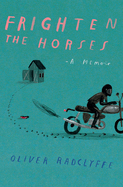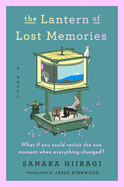Friday, September 27, 2024
In this week's issue, we spotlight Richard Powers's Playground, "a novel of spectacular thematic scope and surreal drama" in which a tiny French Polynesian island becomes the grand setting for the endeavors of a scientist, an artist, a billionaire, and a writer; and Question 7, an "astonishing and uncategorizable" memoir by Richard Flanagan, about the "chain of contingency" connecting his childhood in Tasmania, his father's wartime trauma, physicist Leo Szilard, and author H.G. Wells, among others. Plus, Represent: The Unfinished Fight for the Vote by Michael Eric Dyson and Marc Favreau is an "exceptionally well researched, compelling, and honest" history for teen readers about the voting process in the United States.
And in The Writer's Life, Rachel Weiss's Group Chat author Lauren Appelbaum describes how she channeled her fandom of Bridget Jones's Diary and Pride & Prejudice into the hilarious story of a carefree millennial discovering her direction in life with the much-needed help of her friends.
Playground
by Richard Powers
Richard Powers (Bewilderment, The Overstory) delivers a novel of spectacular thematic scope and surreal drama, centered on the tiny French Polynesian island of Makatea in the Pacific Ocean and those destined to make it their home. Starring four principal characters and the intriguing manner in which their stories converge and collide, Playground glides across the final decades of the 20th century and spills into the present day, culminating in a dramatic vision for mankind's oceanic and land-based future.
Play, in all its manifestations, is a means of escape for Powers's talented cast: brilliant French-Canadian marine biologist Evelyne Beaulieu; artist Ina Aroita; Todd Keane, billionaire founder of the game "Playground"; and literary genius Rafi Young. The book's title resonates with meaning at every turn in the story. And if Todd's latest project succeeds in ushering in an irreversible new age of artificial intelligence, play may indeed be all that they are good for. In Playground, the author's genius shows in his formidable descriptive talents and the graceful clarity of his densely woven plot. It matters not whether one is familiar with the topography or colonial history of teardrop-shaped Makatea, for Powers meticulously sets the stage with vivid, immersive details to ignite the reader's imagination, while Evelyne's oceanic adventures sparkle with colorful imagery.
Deep in the novel, a Makatea ravaged by capitalism and attempting a fragile recovery is seduced by the shiny promises of foreign investors yet again--this time Americans eager to launch a "seasteading" venture. Against the island's luminous blue backdrop, Playground's leading actors reunite, their destinies yielding to the one true story left to be told. --Shahina Piyarali
Discover: A tiny French Polynesian island grapples with its oceanic destiny in this spectacular, surreal story of four individuals and the intriguing ways in which their paths converge and collide.
The Repeat Room
by Jesse Ball
Novelist and poet Jesse Ball's The Repeat Room is a Kafkaesque descent into a legal system based on an experimental program that allows one juror to have an immersive experience of the defendant's life. Abel, a low-class worker in a near-future society with a strict caste system, has been selected to be the juror to experience the life of a man charged with murder. As he is shuffled through a cold, bureaucratic selection process, he also shares a few glimpses into his own alienated life.
Once in the repeat room, however, he is plunged into the suffocating abuse his defendant suffered, and the obsessive sexual relationship that resulted. While Abel was told that the decision would be simple once he spent time in the repeat room, the reader is left to endure the defendant's twisted and horrifying life alongside Abel, only to wonder what kind of "judgment" could possibly come from such a mess and its shocking conclusion.
In the first half of Ball's mesmerizing novel, Abel's journey is a labyrinthine yet precise one, carried out with bewildering and often darkly funny exactitude. Ball perfectly captures this uneasy balance with his arresting and yet slightly off-kilter prose. The novel's second half takes up the same ideas in a startlingly different fashion, sweeping readers up in a dizzying internal monologue that is as horrifyingly inescapable as it is propulsive. It becomes hard to distinguish between the horrors of one man's family and the sins of a larger society. But it also becomes blindingly clear that no one is innocent in a system where a man like this can be found guilty. --Alice Martin, freelance writer and editor
Discover: Jesse Ball's The Repeat Room is a fast-paced tilt-a-whirl of a social commentary absurdist novel, with insights that will leave readers feeling complicit.
A Reason to See You Again
by Jami Attenberg
"Oh, the games families play with each other." So opens Jami Attenberg's 10th book, A Reason to See You Again, which evinces her mastery of dysfunctional family stories. The novel spans 36 years, zooming in for vignettes that illuminate one Jewish nuclear family. The Cohens experience estrangement and reunion, their circle widening and retracting as partners and friends enter and exit the picture. Meanwhile, the characters grapple with sexuality and addictions as they ultimately decide between hiding and figuring out who they really are.
The close third-person perspective shifts effortlessly between perspectives. Chapters fall into thematic sections named for common experiences such as "Moves," "Emergencies," and "Confessions." The focus is on three generations of women: Frieda, her daughters Nancy and Shelly, and Nancy's daughter, Jess. Frieda attempts to assuage loneliness through substance abuse. Nancy gets pregnant at 21 and later becomes a wellness coach. Shelly, a math genius, moves to Seattle to work on early cell phones. Patterns of psychological damage repeat as Nancy follows Frieda into alcoholism and emotional abandonment of her child. Specific incidents also recur, such as male bosses sexually harassing young female employees. Shelly is particularly noteworthy as a childfree woman in STEM who becomes her artist niece's chief supporter.
Attenberg (I Came All This Way to Meet You, 1000 Words) knows where to shine a spotlight to reveal characters' personalities and dynamics. The constant challenge is to break free and start over. Attenberg's characters are as loveable as they are maddening, and the combination of choices and luck makes the novel's events feel as random--and genuine--as real life. --Rebecca Foster, freelance reviewer, proofreader and blogger at Bookish Beck
Discover: Jami Attenberg's seventh novel is another masterful dysfunctional family story, this time focusing on the love lives and careers of three generations of women.
Silence
by Julia Park Tracey
A harrowing story of a community's cruelty and a young woman's resilience, Julia Park Tracey's second novel, Silence, was inspired by the life of her Puritan ancestor.
"There is nothing that can wound me more than the events of the past two years," Silence Marsh reflects. In 1722, she was a happy bride of 20 in her Massachusetts village of Protestant Separatists, but her joy was crushed when her mother, husband, and infant died within a year of one another. Delirious with grief, she cries out "There is no god" at Sabbath worship. Charged with blasphemy, Silence's brutal punishment includes the edict that she be "bound to silence for a twelvemonth." Cruelly, Silence's name becomes her curse. She is consumed by sorrow and shame, which are reinforced by judgmental gossips within her community, whom she dubs "Pilgrim fowl scratching for grit."
As vividly described as Silence's suffering are passages depicting the tenacious Silence's healing time in nature, where she is grateful for "the shore and the sun and the bussing breeze." Her kind father enlists the help of a Boston apothecaress, who provides natural remedies and sends her son, young Dr. Greenleaf, to visit Silence. To her surprise, he graciously offers condolences for her fate, speaks of "an Age of Reason" unfamiliar to her "provincial bog," and prescribes long walks. Dr. Greenleaf renews Silence's spirit, but the town's magistrate is not sated, and accuses her of witchcraft. "This is how they teach us that women are worthless," Silence stubbornly thinks, refusing to be tricked into defending herself. Hard-won joy does find Silence, but her story stands as a cautionary tale of power gone awry. --Cheryl McKeon, Book House of Stuyvesant Plaza, Albany, N.Y.
Discover: In this harrowing novel inspired by the author's own ancestor, a grieving young woman is censured for her outspoken mourning by her Puritan town, resulting in a symbolically misogynistic punishment.
Mystery & Thriller
The Phantom Patrol
by James R. Benn
James R. Benn's thoughtful World War II series featuring U.S. Army investigator Billy Boyle enhances its gripping plots with actual situations faced by Allied soldiers. In The Phantom Patrol, looted artwork becomes a link to the Syndicat du Renard, a criminal gang of Nazi sympathizers, and to the planning of what history will call the Battle of the Bulge.
The Phantom Patrol opens in December 1944, as Boyle and other members of the Counter Intelligence Corps engage in a rousing shoot-out in Paris's famed Père Lachaise cemetery, which leads them to a Gustav Klimt drawing bound for the black market. The novel's brisk action follows Boyle and his partner, British Army Lieutenant Piotr Augustus "Kaz" Kazimierz, through France and Belgium as they search for evidence about the syndicate and its plans for the war.
Benn (The Refusal Camp) brings readers to the battlefields and to the grounds of Versailles, which the Army's Office of Special Investigations uses. Real events, such as a scene in which Nazi SS troops massacre American soldiers, heighten the plot. A visit to a remote Parisian warehouse reveals a chilling sight: the contents of scores of homes owned by Jewish families who have been forcibly transported to concentration camps. The novel's authenticity is enhanced by the inclusion of historical figures, such as CIC special agent Jerome David Salinger, who plans to become a writer (he ended up publishing under just his first two initials), and Major David Niven, who put his acting career on hold for the war. The Phantom Patrol is a freshly riveting twist on a well-documented moment in time. --Oline H. Cogdill, freelance reviewer
Discover: Army investigator Billy Boyle tracks a criminal syndicate dealing in looted artwork during the lead-up to the Battle of the Bulge in James R. Benn's thoughtful and gripping mystery.
In the Air Tonight
by Marie Force
Marie Force's gripping thriller, In the Air Tonight, brings Blaise Merrick back to a crime she witnessed at age 17: Ryder, her high school's golden boy, raping Denise, a classmate. More than a decade later, when she learns that Ryder has decided to run for Congress, Blaise heads back to the small Rhode Island hometown she rarely visits. Having lived with her own silence and regretted it every day, Blaise is determined to do the right thing this time: report the truth and expose Ryder's perfect facade. Her confession and its implications will rock her town--and her family--to its core.
Told in the main characters' first-person voices, Force's propulsive narrative shifts between "Now" (following Blaise's return home) and "Then" (the night of the crime and the days immediately after). Force examines each character's motivations for their actions, and explores the intricate web of small-town relationships that affect everyone's choices. The novel delves into questions of victim blaming, public accountability, whether righting past wrongs is truly possible, and whether a person should be defined by their worst (or best) act. Blaise may be motivated by a desire for justice, but she quickly learns that her decision will have unexpected ramifications not only for Denise and Ryder but also their families and friends.
Tightly plotted and sensitively told, In the Air Tonight deftly handles contemporary hot-button issues as it looks at one woman's difficult path in choosing justice. --Katie Noah Gibson, blogger at Cakes, Tea and Dreams
Discover: Marie Force's tightly plotted thriller examines a woman's decision to report a crime she witnessed in high school and the ramifications of her choice in her small hometown.
Romance
Counting Miracles
by Nicholas Sparks
In Counting Miracles, Nicholas Sparks once again delivers an uplifting, heartfelt story emblematic of his literary trademarks: a North Carolina setting, strong romantic elements, and a surprise, bittersweet ending.
Tanner Hughes is an army veteran and a hardworking drifter, who keeps "on the move," with assignments that take him all over the world. He was raised by his grandparents, and when his widowed grandmother is on her deathbed, she gives Tanner the name of his birth father, Dave Johnson, absent from Tanner's life for 40 years and living in Asheboro, N.C.
This sets Tanner on a journey to the Carolinas, where he crosses paths with Kaitlyn Cooper, a 40-something, acrimoniously divorced, single mother of two, and a caring local doctor; a romance soon blooms. Her nine-year-old son, Mitch, has befriended one of her patients, Jasper--a reclusive, enigmatic elderly neighbor deeply wounded by devastating life losses. Jasper has lived, for more than a decade, a quiet, unassuming life with his devoted dog, Arlo.
One day, as Jasper and Arlo are foraging for morel mushrooms, they come upon a dead deer that was illegally shot. This sighting unearths painful, heart-wrenching memories in Jasper. Jasper's choices eventually lead to the unexpected union of the three battle-scarred characters, as they each experience a reawakening.
Sparks (Dreamland) is a deeply sensitive and compassionate writer who skillfully unravels a complex, multi-generational story. Readers will be swept up in another emotionally resonant, adventurous journey that maps the peaks and valleys of human existence and how love, in its many forms, can miraculously heal loss and loneliness, grief and grave uncertainty. --Kathleen Gerard, blogger at Reading Between the Lines
Discover: Nicholas Sparks's compassionately drawn, multi-generational story brings together--and inspires hope in--three lost souls.
Rachel Weiss's Group Chat
by Lauren Appelbaum
Lauren Appelbaum's debut novel, Rachel Weiss's Group Chat, is a delightfully witty and modern take on Jane Austen's Pride and Prejudice with a dollop of Helen Fielding's Bridget Jones's Diary for added measure.
Throughout her 20s, Rachel Weiss enthusiastically embraced her millennial, single-in-Seattle, Wash., lifestyle. She partied often, wore fabulous shoes and clothes, and hooked up with handsome guys--and felt nary a scintilla of regret. But now her 30th birthday is looming, her best friends (with whom she shares a group chat) are pairing up and settling down, and her mother's complaints about her lack of a serious relationship are growing louder. Rachel is beginning to wonder if there might be more to life than her current breezy approach to it. Then her matchmaking mother tricks her into meeting the neighbors' handsome, slightly nerdy, millionaire son, and Rachel is irritated when he clearly assumes she's a nonserious person. How dare he? Just because she enjoys her life without the encumbrance of a boyfriend and isn't passionate about her career doesn't mean he has the right to judge her. He's clearly wrong--and not her type--and it's annoying that she keeps running into him and heeding his dating advice.
Sometimes lighthearted, frequently hilarious, Rachel's evolution from carefree millennial to a more mature version of herself seems to catch her by surprise, as she ponders her view of the world and what she wants to contribute to society. Readers are sure to love this absorbing and wonderfully thought-provoking novel. --Lois Faye Dyer, writer and reviewer
Discover: In this witty take on Pride and Prejudice, a carefree single woman awakens to new possibilities as her friends settle down and a handsome CEO makes her ponder what she really wants in life.
Graphic Books
Beirut
by Barrack Zailaa Rima, transl. by Carla Calargé and Alexandra Gueydan-Turek
Decades in the making, graphic novelist and filmmaker Barrack Zailaa Rima's Beirut trilogy--equal parts love letter and mournful lamentation for a lost, crisis-ridden homeland--debuts in English, thoughtfully translated by Carla Calargé and Alexandra Gueydan-Turek. The longtime collaborators, who specialize in Arab graphic titles, also provide a contextualizing, illuminating introduction to Rima's global status as an award-winning Arab comics maker. Beirut comprises three books: Beirut (1995), Beirut Bye Bye (2015), and Beirut Rewind (2017)--each spare volume recounts a temporary return to Rima's birth country. Although Rima remains based in Brussels after earning her degree at the Brussels' Royal Academy of Fine Arts in the mid-1990s, "fleeing," she insists, "is not a solution."
In Beirut, Rima re-creates the once "sumptuous Beiruti house" of her youth, abandoned and occupied by others, just as Beirut is home to growing refugee populations, particularly from Palestine (and later, Syria). In Beirut Bye Bye, Rima is traveling with her family when their intended visit to the sea traps them at the bottom of a surreally expansive garbage dump. A literary tour brings Rima back again in Beirut Rewind, in which books become portals for immersive understanding and desperate escape.
Although Beirut might seem slim, Rima's art significantly and impressively expands her narratives. The electrifying mix of double-page spreads, irregularly hand-drawn and borderless panels, jarring all-black backgrounds, and intricate details alternating with simple outlines reflects the unsettled chaos that is quotidian for generations of Beirut's residents. Rima acts as privileged cipher, adroitly navigating the fragmentation--personal, communal, national--of being both insider and outsider. --Terry Hong
Discover: Arab comics creator Barrack Zailaa Rima's electrifying trilogy, Beirut, debuts in English, showcasing tumultuous personal and national histories.
Biography & Memoir
Question 7
by Richard Flanagan
Ten years after winning the Booker Prize for The Narrow Road to the Deep North, Richard Flanagan revisits his father's time as a prisoner of war. It's the starting point but ultimately just one thread in Question 7, an astonishing and uncategorizable work that combines family memoir, biography, and history to examine how love and memory endure.
In 1945, while Flanagan's father was an enslaved laborer in Japan, the U.S. dropped an atomic bomb on Hiroshima, killing at least 60,000 people. The physicist Leo Szilard, who invented and patented the concept of nuclear chain reaction, was inspired to do so by H.G. Wells's prescient novel The World Set Free. Wells had modeled the Martians' actions in The War of the Worlds on the colonization of Tasmania and the genocide of its Aboriginal people. Flanagan grew up in the Tasmanian rain forest--now nearly obliterated--and his father's wartime trauma left him so repressed that he told Flanagan he loved him only on his deathbed.
A full circle; a chain of contingency. The unlikelihood of Flanagan's existence, given his near-death experience at age 21, underpins his marveling at the chance and tragedy of life. His book's title references a short story by Anton Chekhov that asks, "Who loves longer?" If the precise connections between Wells's affair with Rebecca West, the Tsar Bomba, and Boris Johnson--a few links along the book's free-association sequence--remain cryptic, Flanagan's ambition can nonetheless only be admired. As he repeats, "Experience is but a moment. Making sense of that moment is a life." Memories into meaning: that's a memoirist's job well done. --Rebecca Foster, freelance reviewer, proofreader and blogger at Bookish Beck
Discover: Question 7 is an astonishing work that combines family memoir and biography with literary and military history to examine how love and memory endure.
The Last Dream
by Pedro Almodóvar, transl. by Frank Wynne
To hear some film aficionados tell it, melodrama is the cinematic equivalent of cheap beer: fine in a pinch, but kind of flat. Tell that to the great Spanish filmmaker Pedro Almodóvar, who has proved with pictures like All About My Mother and Talk to Her that melodrama, in his expert hands, can be satisfyingly rich. Now comes a literary treat: The Last Dream, translated by Frank Wynne, a collection of previously unpublished melodramatic works of fiction, and autobiographical essays that are "snapshots of my life as I was living it, without any degree of distance." They're exactly what one would expect from Almodóvar, who gleefully flouts conventions of so-called morality with in-your-face works on homosexuality, religion, and more.
It's great, cheeky fun, with fictional pieces like "The Visit," in which a woman pays a call to a school for boys and tells the headmaster that she has "come to avenge" the way the school treated her brother; and "Too Many Gender Swaps," the story of a relationship between two aging men, an actor and a director, who mount a production of A Streetcar Named Desire in which the character of Blanche is now a man named Blanco. In "The Mirror Ceremony," a surreal cross between Bram Stoker and Leonora Carrington, a count with mysterious abilities wants to "retreat from the world" and live in a monastery. Autobiographical pieces include the titular entry, a tribute to Almodóvar's mother, who taught him "how reality needs to be complemented by fiction to make life easier." Devotees of Almodóvar's cinema won't be disappointed by this lively collection. --Michael Magras, freelance book reviewer
Discover: The Last Dream, a collection of previously unpublished pieces by director Pedro Almodóvar, is a delightful mix of surreal stories and autobiographical essays.
Who Could Ever Love You: A Family Memoir
by Mary L. Trump
Mary L. Trump, Donald J. Trump's only niece and a clinical psychologist, examines her family's legacy of greed and narcissism, and its impact not only on her but also on the character of the 45th president of the United States. Who Could Ever Love You illustrates how the answer to the question posed by the memoir's title was, for generations within the Trump dynasty, "no one."
This memoir comes just four years after Too Much and Never Enough, Mary Trump's book about her father's family, and opens with a description of her debilitating isolation and stress, which began with her uncle's election. Trump is the daughter of Fred ("Freddy") Trump Jr., who was the second of five children and his father's namesake. Mary grew up witnessing her grandfather's contempt for her beloved father, the natural heir to the leadership of Trump Management. Instead, Fred Sr. named Donald, "his obnoxious middle son," president of the company when Donald was 24. Noting Fred Sr.'s ruthless New York City real estate policies, Mary writes that the patriarch expected Fred Jr. to be "a killer," and that Fred Sr.'s "unrelenting criticism" eventually led to her father's despair, alcoholism, and early death.
Mandatory visits for family gatherings to "the House" where her grandparents lived confirmed "there was no way for me to fit into this family," a young Trump decided. She and her brother, Fred III (called Fritz) received financial support, but not love, from their grandfather. Near the end of this memoir, Trump writes that she and Fritz were disinherited by their grandfather and filed a lawsuit to challenge his will; subsequently, her uncles sued to stop her from publishing her first book. "Lawsuits, my family's love language," she wryly observes. --Cheryl McKeon, Book House of Stuyvesant Plaza, Albany, N.Y.
Discover: In this painful memoir of her father's family and its legacy of emotional torment, Mary L. Trump also includes her perspective on the 45th president.
History
Book and Dagger: How Scholars and Librarians Became the Unlikely Spies of World War II
by Elyse Graham
In her gripping fourth work of nonfiction, Book and Dagger, Elyse Graham uncovers the little-known story of the spies "who came in from the carrel": academics, librarians, and researchers whose expertise proved critical to U.S. intelligence work during World War II. Graham (You Talkin' to Me?) delves into correspondence, biographies, and other sources to chronicle the work of the Office of Strategic Services (OSS), whose Research and Analysis Branch relied on the work of academics transplanted from their ivory towers to the field.
Graham highlights individual agents, such as librarian and manuscript hunter Adele Kibre and Yale University professors Joseph Curtiss and Sherman Kent, who left their comfortable lives to search out key documents, cultivate sources, and manage other field agents. She explores the OSS's contributions to the work of resistance groups across Europe and to the efforts to track down hundreds of pieces of art stolen by the Nazis. Throughout, she emphasizes the peculiar ways academia had prepared these unlikely agents for their finest hours: it gave them the skills necessary to glean, compile, interpret, and synthesize huge amounts of information that proved crucial to winning the war. Graham shares anecdotes full of classic spy craft--cover identities, invisible ink, coded messages--but always returns to the intelligence, dedication, and unvarnished hard work that made OSS agents highly (albeit secretly) successful. In honoring scholars who "knew when to follow principles, not orders," Graham demonstrates the humanities' power to change the course of history and argues for its lasting value as a discipline. --Katie Noah Gibson, blogger at Cakes, Tea and Dreams
Discover: Historian Elyse Graham celebrates the hidden but vital work of the academics whose contributions to American intelligence services proved critical to winning World War II.
Social Science
We Are Animals: On the Nature and Politics of Motherhood
by Jennifer Case
In her second book, We Are Animals, Jennifer Case explores the evolution, politics, and culture of contemporary parenthood in 15 intrepid essays.
Case (Sawbill) ponders medical and ethical quandaries via autobiography. Raising children far from her extended family, she finds herself glued to online parenting discussion boards, even though she theoretically values in-person community connections more than virtual ones. "Birth (Un)Medicalized," structured as a case study, demonstrates the hospital versus home delivery decision, which Case believes is unfairly left to women to research. When pregnant with her second child, the author hired a doula and unexpectedly gave birth at home, and in "Unintended," she reveals that this child was conceived amid ongoing uncertainty about how having another child would affect her academic career. Case recounts considering a termination during the 2016 presidential campaign--despite her Catholic upbringing--in "A Political Pregnancy." "Birth Work in the Bible Belt" expresses Case's unease about hiring an Evangelical Christian doula, given that religion can support the patriarchy. "On Race and Motherhood in America" confronts Case's white privilege in her still-segregated Arkansas town.
Science and statistics appear in illuminating ways. "The Mother-Infant Dyad" traces how Indigenous practices persist in the practices of attachment parenting, while "A Cost Accounting of Birth" exposes the physical and financial risks of pregnancy. The case interrogates the assumed superiority of natural childbirth and illustrates the challenges of postpartum depression, pumping breast milk, and eco-anxiety. Overlapping content leads to repetition regarding regret over her second pregnancy, but Case's bravery in facing maternal ambivalence is commendable. This forthright, lyrical study of maternity is an excellent companion to Lucy Jones's Matrescence. --Rebecca Foster, freelance reviewer, proofreader and blogger at Bookish Beck
Discover: The 15 forthright, lyrical autobiographical essays in this collection illuminate the evolution, politics, and culture of contemporary motherhood.
Abolish Rent: How Tenants Can End the Housing Crisis
by Tracy Rosenthal and Leonardo Vilchis
"The rent is too, too damn high" state Abolish Rent coauthors Tracy Rosenthal and Leonardo Vilchis, and it's the truth. In the U.S., "it would take four full-time minimum-wage jobs to afford to rent a typical two-bedroom apartment." Millions of Americans are renters, and 22 million households spend more than a third of their income on rent. The cost of rent is a barrier to saving for a home, saving for retirement, and even paying for other necessities such as food and health care. Abolish Rent looks at this crisis and details how tenants can take back their rights. Rosenthal and Vilchis are cofounders of the LA Tenants Union and have decades of experience in tenants' rights.
An excellent companion read to Evicted by Matthew Desmond, Abolish Rent focuses on the Los Angeles, Calif., area and the rental practices in place there, which can be found all over the U.S. These include exponential increases in rent, lack of upkeep, and dangerous conditions, as well as outright threats from landlords and management companies.
Full of validating quotations such as "The 'passive' income of rent is active income stolen from those of us who work," the book also offers abundant citations for readers to send to that one uncle who refuses to believe the extent of the problem. Brief and to the point, Abolish Rent provides an important perspective and a terrific starting point for anyone who is interested in the idea that there could be a world without rent. --Alyssa Parssinen, freelance reviewer and former bookseller
Discover: Abolish Rent is an eye-opening look into the world of renters that may persuade some to join or form a renters union.
Nature & Environment
The Age of Melt: What Glaciers, Ice Mummies, and Ancient Artifacts Teach Us about Climate, Culture, and a Future Without Ice
by Lisa Baril
It's no secret that ice is melting faster than ever all around the world. In Age of Melt, science writer Lisa Baril examines what that means on an archeological level for humanity. Spanning the icy regions of the globe, including the Alps, the Himalayas, and other places where humans have historically resided, Baril discusses not just archeological finds in melted ice but also how cultures have lived with ice and the traditions they formed. She describes how men in Pakistan "seed" glaciers to provide water for their crops and villages, and what ice patches mean for reindeer and the people who rely on them for survival. She even attends a pilgrimage in Peru to a glacier.
Beginning with the well-known story of Ötzi, the iceman discovered in the Alps in the '90s, Baril takes readers on a knowledgeable journey through the ice with reverence for those who came before. The Age of Melt is easily readable and entertaining, pausing to explain scientific terms like "albedo" (the amount of energy reflected by an object), ensuring readers can follow the narrative and understand not just that something happened, but how and why.
Baril deftly introduces readers to the world of ice-patch archeology and explains its importance and how it differs from regular archeology. Concise and fascinating, The Age of Melt emphasizes the risks of climate change and clearly illustrates how it is not just a natural climate variation. Readers are then left to ponder what they're leaving to future generations with the question that ends the book, "Did we accomplish what needed to be done?" --Alyssa Parssinen, freelance reviewer and former bookseller
Discover: The Age of Melt takes readers on a journey into the little-known world of ice-patch archeology, and what the changes it reveals mean for future generations.
Poetry
Want, the Lake
by Jenny Factor
Want, the Lake, Jenny Factor's long, intricate second poetry collection, envisions womanhood as a tug of war between desire and constraint. "If want is a lake, I learned to sail in it," she writes, recalling her time as a girl at summer camp--until later life restricted her cravings.
Factor (Unraveling at the Name) showcases the tension between past and present, license and limit. Two poems titled "Elegy for a Younger Self" string together vivid reminiscences. "The Modern Lotus Eaters" subverts Alfred, Lord Tennyson by expressing ravenousness for memories: "We eat to remember, not forget/ .../ for only what we eat, we keep." A retelling of the Snow White and Rose Red fairy tale warns against reckless yearning, pairing an echo of a Robert Frost line--"Something there is that does not love a bear skin coat"--with effulgent alliteration: "Its fur a friction of fitness and finesse/ Its fugacity sleek as water's."
In "Sapphics on Nursing" and verses from the section titled "there is no end to it," romantic friendships edge toward homoeroticism. In this context, heterosexual marriage and motherhood represent either delightful intimacy or a snare. The challenges are to preserve selfhood in a partnership ("Two planets, in their rotations, whose orbits bless one another") and balance caution and freedom in parenting ("one hand pushes you forward, while the/ other is all stop sign").
Allusion and experience, slant rhymes and wordplay ("Not peaceful.../ but piecemeal"; "dazed and days") craft a lavish tapestry of topics related to women's stories. Eschewing the temptations of anxiety, perfectionism, and somnambulism, Factor inspires by choosing the "lived life." --Rebecca Foster, freelance reviewer, proofreader and blogger at Bookish Beck
Discover: Jenny Factor exhibits the tension between desire and constraint in women's lives through the allusive, playful poems of her intricate second collection.
Signs, Music: Poems
by Raymond Antrobus
British Jamaican poet Raymond Antrobus's intimate third collection, Signs, Music, contrasts the before and after of becoming a father, a transition that prompted Antrobus to reflect on his D/deaf and biracial identities, as well as the death of his own father.
The book contains two parts: "Towards Naming" is set in the final months of Antrobus's partner's pregnancy; "The New Father" gathers vignettes from their son's first year. Each long section incorporates many untitled poems in varying styles that nevertheless flow smoothly, almost like a monologue. Antrobus (All the Names Given) sits in cafés or walks through London, thinking and observing. He addresses his unborn child ("In months you will be here./ It is hypothetical. It is real.") and marvels at his own impending transformation: "Today/ is my last Father's Day as a non-father. This time/ next year I'll be a different creature."
Birds feature metaphorically in multiple poems, including a villanelle toward the end of the collection in which they symbolize the expatriate's disorientation: "The birds sound different in this city." For Antrobus, grief persists but fuels a determination to parent contrarily to his alcoholic father and resist "the trigger/ of seeing my child/ get what I needed." He expresses two fears related to his brown son: that "the world won't trust you/ before you know why" and "that you won't have the patience// to connect with your deaf father." By this volume's touching conclusion, however, the latter has been defused: the collection's title commemorates Antrobus's son's first word in sign language, "music." --Rebecca Foster, freelance reviewer, proofreader and blogger at Bookish Beck
Discover: Raymond Antrobus's intimate collection contrasts the before and after of becoming a father as the poet reflects on his deaf and biracial identities and the death of his own father.
Greater Ghost
by Christian J. Collier
In his first full-length collection, Greater Ghost, poet Christian J. Collier dips his hands into the cold, clear stream of grief and tries over and over again to give shape to loss despite its tendency to slip through grasping fingers. In "Ghost [Tether]," he names grief "a bruise-bodied, faceless god," and, in "Boot Hill," cries out, "& I say speak, Lord, tell me// what is time but a shaky way/ to try to measure what can never be had back?"
Collier's voice is laced with a tender confidence, a swagger governed by humility and a sure knowledge of his identity as a Black man in the American South, a place, he says, where "we sacred all we can to stay living, holy what is ours/ before some rabid hand wrestles it away." The ghosts Collier carries take many forms, some more substantial than others. All have left their mark, but perhaps none more than a child conceived but miscarried. This trauma often remains hidden, especially for fathers, but Collier honors that pain by expressing "the grief we could no longer cradle" across multiple poems, asking in "Submission," "Tell me/ how exactly/ does one journey away from these ruins, step outside them." Collier puts the page to good use by carefully arranging each line and employing black bars to obscure the names of lost loved ones. These elements provide a strong visual effect, but it is the emotional truth of each poem that elevates this collection. --Sara Beth West, freelance reviewer and librarian
Discover: In his powerful and memorable first full-length collection, poet Christian J. Collier dips his hands into the cold, clear stream of grief and tries repeatedly to give shape to loss.
Children's & Young Adult
Represent: The Unfinished Fight for the Vote
by Michael Eric Dyson and Marc Favreau
Michael Eric Dyson and Marc Favreau, co-authors of Unequal: A Story of America, team up again to bring young readers accessible, comprehensive, and invaluable information about the American political system. In this collaboration, the authors focus on the history and importance of voting in the United States.
Dyson and Favreau discard the traditional history books and reveal many of the discriminatory reasons behind voting constructs like the Electoral College ("to block the will of the people"), property or identification requirements, and literacy tests (questions "intentionally designed to stump the test takers"). The authors show how voting deterrents have existed throughout the evolution of U.S. democracy, and when those in positions of power feel threatened by certain groups, they work to prevent those groups from casting ballots. No matter how often anti-democratic efforts have arisen, though, individuals have fought--and sometimes died--for suffrage. Readers learn about people such as Robert Smalls, who became a congressman for the district where he was born enslaved, and Zitkála-Šá, who fought for the rights of Native Americans in the early 20th century. Dyson and Favreau emphasize that "the threats to our democracy are as dire as ever, but... change is possible, one brave person at a time" and they offer suggestions for how readers can be actively involved in elections, even if they aren't old enough to vote yet.
Represent is exceptionally well researched, compelling, and honest. The target audience is teenagers, but readers of all ages will benefit from picking up this stellar resource. --Jen Forbus, freelancer
Discover: The authors of Unequal team up again to enlighten young adults on the unvarnished history of suffrage in the United States, and the importance of actively participating in democracy.
Tig
by Heather Smith
In this sensitive, absorbing, and funny novel, 11-year-old Tig must learn how to live with love, care, and hope from kind, stable uncles after a lifetime of neglect.
Tig and her older brother, Peter, were abandoned by their mother, left alone in their house for four months. Once the children are discovered, they are turned over to their sweetly bumbling Uncle Scott and his partner, Manny. The kids are "different" now, though: "It's like how abandoned animals stop trusting humans. They go wild and crazy and when they're rescued it takes ages for them to calm down, to love and be loved again." A living situation that seems too good to be true is scary for kids who have survived trauma, and Tig responds in whatever way she can to keep her internal balance. She lashes out, gives her uncles the cold shoulder, misbehaves, steals, lies, sets outrageous goals for herself, and disappears into her imagination. Tig is slow to trust but working toward one of the outrageous goals (become the "Cheese-Rolling Champion of Wensleydale"), allows her to emerge into her new life.
In the complex, unforgettable Tig, Heather Smith (The Agony of Bun O'Keefe) explores the stunning (and sometimes self-sabotaging) resourcefulness children can muster in the face of adversity. Tig, who has a precocious and creative way with words, reveals her grief and anxiety in subtle details, like the words she chooses when she plays a dictionary game with Peter: "Forsake: to leave someone forever, especially when they need you." Tig herself may not realize what she's doing, but savvy readers will catch on. Tig is the next great read for fans of Dusti Bowling and Rebecca Stead. --Emilie Coulter, freelance writer and editor
Discover: After being abandoned by her mother, an imaginative girl navigates the uncomfortably perfect new life offered by her kind uncle and his partner in this sensitive, absorbing, funny novel.
Esi the Brave (Who Was Not Afraid of Anything)
by Bernard Mensah, illus. by Raissa Figueroa
A girl must be brave when she loses her parents at a festival in this dazzling, triumphant picture book by debut author Bernard Mensah and Coretta Scott King illustrator honor recipient Raissa Figueroa (We Wait for the Sun).
Esi the Brave (Who Was Not Afraid of Anything) "loved monsters and ghosts and things that went bump in the night." When Mummy warned Esi that the Kakamotobi Festival would have loud music, scary monster faces, and a big crowd, Esi replied, "I am NOT afraid." On their drive to the festival, Esi heard music and saw rainbows that "SWISHED and SASHAYED, SWIRLING in the sunlight." But those weren't rainbows at all--they were monsters "ten times scarier than the monsters in her books!" Esi closed her eyes in the backseat but heard the doors open and close anyway: "The monsters had Mummy and Daddy, and she was going to get them back!" Luckily for Esi, the scary-looking monsters are merely merrymakers in creative masks.
An author's note explains that the Kakamotobi Festival is celebrated in Ghana "and LOTS of people come to dress up, dance... and wear different kinds of masks." Mensah's text zigs and zags across the pages, increasing and decreasing in size along with the action. Figueroa's watercolor and digital illustrations move with the text, winding across double-page spreads, giving the art a sense of tumbling movement. The monsters are wildly inventive, and Figueroa's palette is clearly inspired by Mensah's description of the "very colorful clothes" worn to the festival. This cinematic picture book about conquering fear is sure to be a favorite read aloud. --Hadeal Salamah, blogger, librarian, freelance reviewer
Discover: A girl must be brave when she loses her parents at a festival in this dazzling, triumphant picture book.
The Remarkables: The Most Incredible Children I've Met--So Far!
by Clotilde Perrin, transl. by Daniel Hahn
Clotilde Perrin's The Remarkables: The Most Incredible Children I've Met--So Far!, translated from the French by Daniel Hahn, introduces readers to the 38 kids that the author (Inside the Villains; Gotcha!) has encountered "on my travels," as her illustrated likeness says up front. All readers of this outsize, gorgeous, and charming picture book should find themselves represented by one of the featured kids, although why should readers limit themselves to just one?
The kids get one or two pages each to explain what makes them, as the book's subtitle has it, incredible. Leading off is the Electric child, whose spiel begins, "Don't come too close! I'm a live wire, born with sparking eyes and a shock of wild hair." Many self-descriptions can be read metaphorically, as when the Royal child says, "Since the day I was born, my parents have kept me on a soft cushion sewn with threads of gold." Still other kids' statements are strictly fanciful, as when the Foldaway child says, "I'm easy to transport: you can fold me in two, four or even eight."
Each layout includes a dynamic, defining illustration of the featured kid and tidy supplemental vignettes, as of the Elastic child at exercise class flexing spaghetti-like limbs and showing off "my superpowers." The Remarkables sits somewhere between an art book and an illustrated reference book of personality types, all of which have something to recommend them, and all potential objects of identification for readers. The book concludes with an inventive quiz: "And What Sort of Remarkable Child Will You Be?" Every answer is implicitly correct, of course. --Nell Beram, freelance writer and YA author
Discover: Each of 38 kids portrays a different personality type in this gorgeous and charming emotions-first picture book in which readers are sure to find themselves represented.
Seriously Happy: 10 Life-Changing Philosophy Lessons from Stoicism to Zen to Supercharge Your Mindset
by Ben Aldridge
Mental health matters are unpacked through philosophy and quirky challenges in Ben Aldridge's uplifting first YA title, Seriously Happy, in which the author mixes personal stories and succinct synopses of teachings from OG philosophers. Alongside Aristotle and Socrates, Aldridge also includes insights from lesser-known great minds like Bao Gu, a Chinese female Taoist physician, and Nigerian philosopher Orunmila, to show readers how to be confident, decisive, and resilient.
Each chapter homes in on specific wellbeing drivers such as confidence, growth mindset, decision-making, resilience, and relationships to encourage teens to consider a fresh approach to managing stress and emotional balance. Aldridge also includes unorthodox challenges to proactively boost one's mood, like "walking a banana" or "shame attacking" ("deliberately exposing ourselves to embarrassing situations" to become desensitized to them). But not all of Aldridge's suggestions are so offbeat: he wisely counterbalances the outrageous with plenty of practical tips, such as doing a digital detox, taking cold showers, nixing negative self-talk, and creating positive daily routines.
Young adult readers will likely be as drawn to designer Michelle Brackenborough's monochromatic graphics as they will be to the ancient philosophical narratives Aldridge unpacks throughout. The illustrations give the work a friendly feel and provide a bit of levity to the author's candid descriptions of his own struggles with severe anxiety and panic attacks. Aldridge's accessible, informative work plainly states that everyone deserves happiness in their lives, but is clear that what constitutes "happiness" is different for all of us. --Rachel Werner, author and teaching artist at Hugo House, Lighthouse Writers Workshop and The Loft Literary Center.
Discover: An interactive primer for teens filled with tools, tips and guidance on how to use Stoicism, Taoism and other philosophies to maintain or improve their mental health.
September Stars
The Writer's Life
Lauren Appelbaum: Celebrating Millennial Friendships and Finding 'The One'
 |
|
| Lauren Appelbaum (photo: Kiersten Marie) |
|
In Rachel Weiss's Group Chat (Forever, $17.99; reviewed in this issue), Lauren Appelbaum explores the delights and travails of being an American millennial. When Rachel Weiss's circle of friends find significant others and meaningful careers, she is forced to consider her own lifestyle and what she truly wants. Appelbaum lives in Seattle with her family.
The Pride and Prejudice/Bridget Jones's Diary connections in your book are done so well. Did you begin planning Rachel's story knowing that you wanted to give a nod to those classic novels?
The first spark of an idea I had for this book was, "What if it was an homage to Bridget Jones's Diary, but with a group chat instead of a diary?" Then the characters and plot points came to me from there. So it was definitely intentional, and I had a blast with it, because I've always been a big fan of both.
Pride and Prejudice was the original enemies-to-lovers story, right? I just love how Elizabeth and Mr. Darcy's relationship forces them to reckon with parts of themselves that might need some work. I tried to capture that dynamic with Rachel and Christopher. And I always loved the character of Bridget Jones, because it was such fun to watch her try her best and yet make so many mistakes. The other thing I've always loved about that story is the friend group, the way they are always there to rehash everything that is going on in each other's lives. My mom once told me that friends can come and go, but your spouse is with you forever--but when you're young and single it's very much the opposite. Your friends are there through every relationship and breakup. With Rachel Weiss, I wanted to explore the awkwardness that happens within a friend group when that starts to shift.
The Seattle insider references are great fun. Do you think the story could have been set elsewhere, New York or Los Angeles, for example, without impacting the story?
I love this question! Rachel's worldview, sense of self, and social circle are all shaped by the culture she lives in, which is Seattle. Anyone who lives around here can tell you we're a bit weird and quirky. I've heard other cities have started doing naked bike rides, but one of my favorite scenes in the book is set on the river in the Bavarian town of Leavenworth, which I don't think you could quite replicate anywhere else in the country. The river float scene was inspired by true events that happened during my bachelorette party. The absurd hilarity of a group of possibly drunken women trying to rescue one another from the river's current is burned into my memory. Regarding the naked bike ride, I have never participated, being more inclined to watch from the sidelines, but one of my sisters has! I would love to be that bold. The main reason it had to be Seattle is that it's the place I know best, having lived in the area since I was a tween, so I might not have done another city justice in the same way.
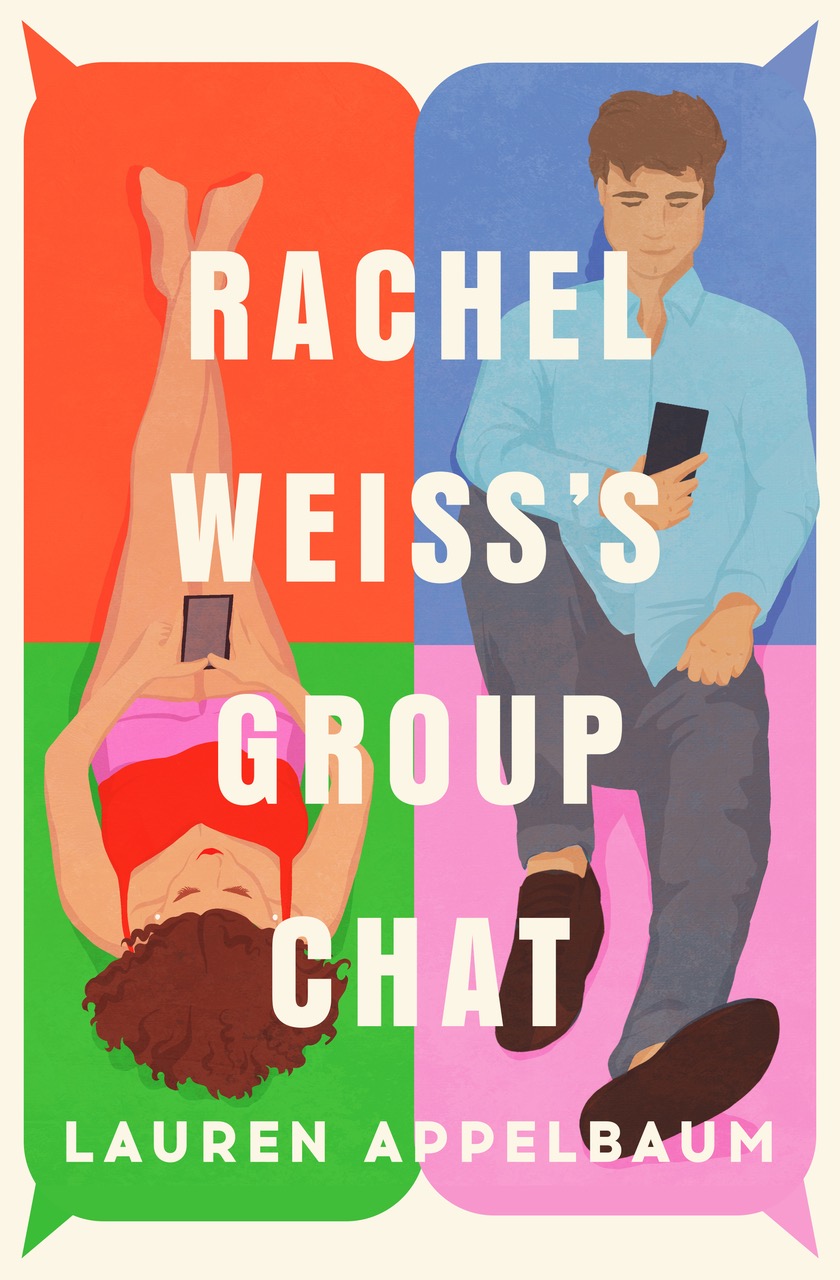 Rachel's evolvement from carefree single person to a more thoughtful, emotionally mature woman who contemplates her place in the wider world seems on point for contemporary 20-somethings. Did you base her journey on observation of friends or your own experiences?
Rachel's evolvement from carefree single person to a more thoughtful, emotionally mature woman who contemplates her place in the wider world seems on point for contemporary 20-somethings. Did you base her journey on observation of friends or your own experiences?
It's human nature to be entirely focused on yourself when you're younger, and everyone has to evolve past that in their own way, which is harder for some people than others. Rachel is sort of my exact opposite (I'm a classic introvert), but her flaws might (might!) be amplifications of my own flaws. It feels to me like it's not unusual for millennials and younger generations to be more self-centered, because we are often told to tune into our feelings (not to mention that we often have to self-advocate in so many ways), and that's not always a bad thing.
But Rachel learns, like we all have to at some point, that the world doesn't revolve around her, and that her actions and words impact other people. Learning these lessons at the ripe age of 30, Rachel is in a kind of arrested development, but that's pretty typical in my experience. A lot of us don't even think about settling down in the traditional sense until our 30s. There's an interesting divide between those who have settled down and those who are still dating or single. It may cause rifts or changes in friendships, but it's always fun to hear the stories from the other side. So I wanted to write about that time in a person's life, when things start changing around Rachel but she's not sure if she's ready to change yet.
Rachel's relationships with her chat group friends, her sister Jane, her mother, and younger sisters are an important part of her life, and the theme of "sisterhood" and what that means in a woman's life runs through the plot. Did you intentionally create that theme or did it evolve as the plot unfolded for you?
The theme of sisterhood unfolded naturally and inevitably. Rachel's friends are incredibly important to her, and she grew up in a family full of women. Having other women around is so important at every life stage--people to make sense of the world with. At various points, Rachel looks up to her older sister, wants to differentiate herself from her mother, learns from her friends, and gains a new sense of who she is based on how they all see her. I've always felt that we have a kind of primal need for Girl Talk, so it makes sense that Rachel's group chat is like a lifeline to her.
Your bio says you're a tech editor. Did being an editor, although in a field separate from fiction writing, help while writing a novel?
Definitely! My editing background helps me ask, why is this here? What is the reader gaining from this part? Actually, when I first submitted the book to my editor, it was about 10,000 words too short. So I had to put my writer's hat back on and fill it out a bit more. I got to add more scenes with certain friends and with the love interest, Christopher, so that was really fun, getting to dive back in and write new stuff.
Can you tell us a bit about your writing process?
I have one superstition that I think a lot of writers probably share, which is that I won't talk about a book idea until it's pretty solidified. It feels like Ideas with a capital I are flighty creatures that get scared away easily, so I try to keep my mouth shut. Other than that, I follow a pretty basic trajectory that involves outlining on index cards, then drafting linearly in Scrivener, preferably while sitting in a café and listening to moody music. --Lois Faye Dyer, writer and reviewer
Book Candy
Book Candy
Librarians on the case: CrimeReads shared a "list of mysteries featuring bookish sleuths."
---
"David Bowie songs reimagined as pulp fiction book covers: Space Oddity, Heroes, Life on Mars & more," courtesy of Open Culture.
---
"Can you match the last line to the famous novel?" Mental Floss challenged.
Rediscover
Rediscover: Nelson DeMille
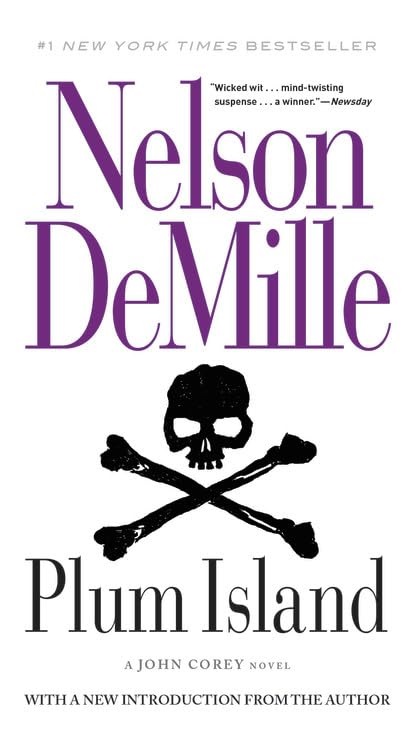 Nelson DeMille, who wrote "stylish suspense thrillers and adventure novels, including books that captivated millions of readers with their tales of terrorist plots, Mafia skullduggery and Long Island killings," died September 17 at age 81, the Washington Post reported. DeMille "had a cheery disposition that could mask his talent at concocting horrifying--and frequently riveting--fictional scenarios. He wrote about airline hijackings, nuclear threats, wartime massacres and psychotic hostage-takers, even as he sought to balance the violence with snappy dialogue and wry quips that helped widen his audience."
Nelson DeMille, who wrote "stylish suspense thrillers and adventure novels, including books that captivated millions of readers with their tales of terrorist plots, Mafia skullduggery and Long Island killings," died September 17 at age 81, the Washington Post reported. DeMille "had a cheery disposition that could mask his talent at concocting horrifying--and frequently riveting--fictional scenarios. He wrote about airline hijackings, nuclear threats, wartime massacres and psychotic hostage-takers, even as he sought to balance the violence with snappy dialogue and wry quips that helped widen his audience."
When DeMille signed a book deal with Simon & Schuster in 2014, the publishing house estimated that more than 45 million copies of his novels were in print worldwide. He wrote about two dozen novels, many featuring John Corey, a former homicide detective who first appeared in Plum Island (1997) and last in The Maze (2022). Other books were set in the world of espionage or in the military, and drew on DeMille's combat experience in Vietnam, where he earned the Bronze Star.
After returning home from Vietnam, he hoped to use that experience in crafting "the great American war novel," though his first books "were police procedurals, which he sold to small paperback publishers for $1,500 each--but he earned praise for later military novels including Word of Honor (1985)," the Post wrote. Word of Honor was adapted into a 2003 movie for TNT, starring Don Johnson. A screen adaptation of The General's Daughter (1992), starring John Travolta and Madeleine Stowe, was released in 1999.
After graduating from Hofstra University in 1970, DeMille worked odd jobs for a few years while struggling to launch his career as a writer. The Post noted that at times "he used a pen name, including for The Five-Million-Dollar Woman, a 1976 biography of journalist Barbara Walters--a paycheck job he said he undertook for the $2,000 advance--that he published under the pseudonym Ellen Kay, taken from his then-wife's first two names."
"The book did okay," he later wrote in an essay, "but I was clearly going nowhere as a writer, no matter what name I used on the cover."
He had his first major success with By the Rivers of Babylon (1978) and appeared to find a new niche as a spy novelist with The Charm School (1988). "I said to myself, since the Cold War is going to be around for the next 200 years, you have a career," he told the Times in 1997, adding: "I had about seven or eight great ideas, but the Cold War ended."
In 1990, he published The Gold Coast, which was set on the North Shore of Long Island and was optioned for a movie that was never made. One of his last novels, The Maze (2022), also had a Long Island setting.
DeMille "wrote his books in longhand, with a No. 1 pencil and stacks of yellow legal pads, and was unabashed about his literary ambitions, even as he knew he had little control over his ultimate legacy," the Post noted. In a 2007 interview, he said, "Charles Dickens was a popular, commercial writer, and now his books are called classics. Maybe a few of mine will be classics, hopefully, but if not, not."


